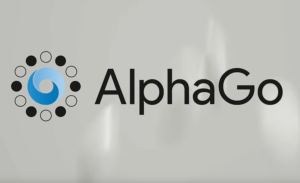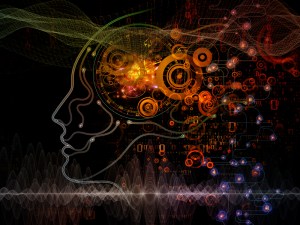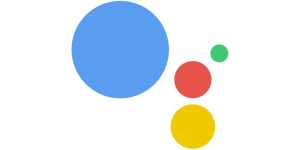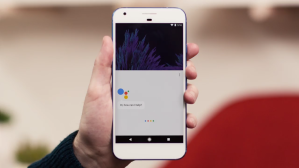testsetset
This week, Google’s AlphaGo defeated a top-ranked Chinese Go player, Ke Jie, in the first match of a three-game series underway in China. The victory by AlphaGo — created by DeepMind, which Google bought 3 years ago — follows its headline-grabbing triumph over South Korean Go star Lee Sedol last year. Go is a two-player ancient Chinese board game played by more 40 million people worldwide.
This battle of man versus machine naturally strikes the public’s fancy and recalls Deep Blue‘s epic 1997 win over Garry Kasparov, a world chess champion. Deep Blue was an IBM supercomputer that relied on brute force computation. AlphaGo, meanwhile, uses machine learning to get better and faster at avoiding risks to narrowly achieve one thing: winning a game of Go. “Last year, it was still quite humanlike when it played,” Ke said after his loss. “But this year, it became like a god of Go.”
Even while the AI capabilities of AlphaGo surpass those of Deep Blue (or Watson), they share a common limitation. They’re examples of artificial narrow intelligence that come nowhere near the generalized artificial intelligence expected (or feared) by so many. Chess? Check. Self-driving cars? Check. Go? Check. HBO’s Westworld? Not yet, if ever.
AlphaGo’s win shows how far narrow AI has come and of how far away general AI remains. Games two and three are scheduled for today and Saturday and can be watched via live stream.
June 5th: The AI Audit in NYC
Join us next week in NYC to engage with top executive leaders, delving into strategies for auditing AI models to ensure fairness, optimal performance, and ethical compliance across diverse organizations. Secure your attendance for this exclusive invite-only event.
For AI coverage, send news tips to Khari Johnson and Blair Hanley Frank, and direct guest post submissions to John Brandon. To receive this information in your inbox every Thursday morning, subscribe to AI Weekly — and be sure to bookmark our AI Channel.
Thanks for reading,
Blaise Zerega
Editor in Chief
P.S. Please enjoy this video, “Is Singularity Near?” featuring Ray Kurzweil interviewing the late Marvin Minsky, a founding father of artificial intelligence.
From the AI Channel
 5 things Amazon Alexa needs to do before 2020
5 things Amazon Alexa needs to do before 2020
Alexa is now humming along in my living room most evenings. I use the voicebot routinely to ask about basketball scores and discover obscure facts about people and places. The more I use the bot, the more I wonder how it could evolve. Here are five ways I’d like Alexa to help me during the […]

Google’s AlphaGo narrowly beat the top Go player because it avoids risks
Google’s AlphaGo program bested the world’s top Go player by the slimmest margin possible in the first of three matches Tuesday, but that doesn’t mean humanity is safe. The AI won a match against Ke Jie as part of an exhibition during the Future of Go Summit in Wuzhen, China. While Ke made moves reminiscent […]
 Bots will soon be able to borrow our identities
Bots will soon be able to borrow our identities
What if all the emails you’ve ever written and any other published statements you’ve made could be incorporated into a digital identity? And what if anyone could access that identity to get your advice or opinion on something when you’re no longer around? My current work at the MIT Media Lab is dedicated to making […]
 How video games help improve real-world AI
How video games help improve real-world AI
For decades, video games have been criticized for purportedly wasting time, stifling creativity, and even influencing violent behaviors. Now, it seems that video games have become an unlikely tool for AI researchers to improve their systems. Seeing stop signs Take, for example, Artur Filipowicz, an AI researcher at Princeton University who’s been trying to develop […]
 ProBeat: Google is betting AI will succeed search
ProBeat: Google is betting AI will succeed search
OPINION: This year’s I/O developer conference felt a little repetitive. Almost everything announced was an iteration on what Google showed off last year. But there was one theme that was particularly clear, especially on day one: Google is becoming more and more confident with its bet on AI. The consumer version of this is Google Assistant. […]

Google Assistant voice apps arrive on Android and iPhone — here’s what they can do
Google released its standalone Google Assistant iPhone app on Wednesday and made it possible for both Android and iOS smartphone users to access voice apps made by third-party developers. These changes were two of about a dozen major Google Assistant announcements made this week at I/O, Google’s annual developer conference. Since the launch of the Actions on Google platform […]
Beyond VB
Google’s New AI Is Better at Creating AI Than the Company’s Engineers
At its I/O ’17 conference this week, Google shared details of its AutoML project, an artificial intelligence that can assist in the creation of other AIs. By automating some of the complicated process, AutoML could make machine learning more accessible to non-experts. (via Futurism)
Hear Me Out: Let’s Elect an AI as President
Is it possible that someday we will elect an AI president? Given some of the recent occupants of the White House, many might consider it an upgrade. After all, humans are prone to making decisions based on ego, anger, and the need for self-aggrandizement, not the common good. An artificially intelligent president could be trained to maximize happiness for the most people without infringing on civil liberties. It might even learn that it’s a good idea to tweet less—or not at all. (via Wired)
How Montreal aims to become a world centre of artificial intelligence
It might seem like an ambitious goal, but key players in Montreal’s rapidly growing artificial-intelligence sector are intent on transforming the city into a Silicon Valley of AI. (via Montreal Gazette)
How Salesforce CEO Marc Benioff uses artificial intelligence to end internal politics at meetings
Not only is Salesforce CEO Marc Benioff predicting that artificial intelligence will one day help run everyone’s companies — he’s already using it at Salesforce. (via Business Insider)
Subscribe to AI Weekly
and receive this newsletter every Thursday


